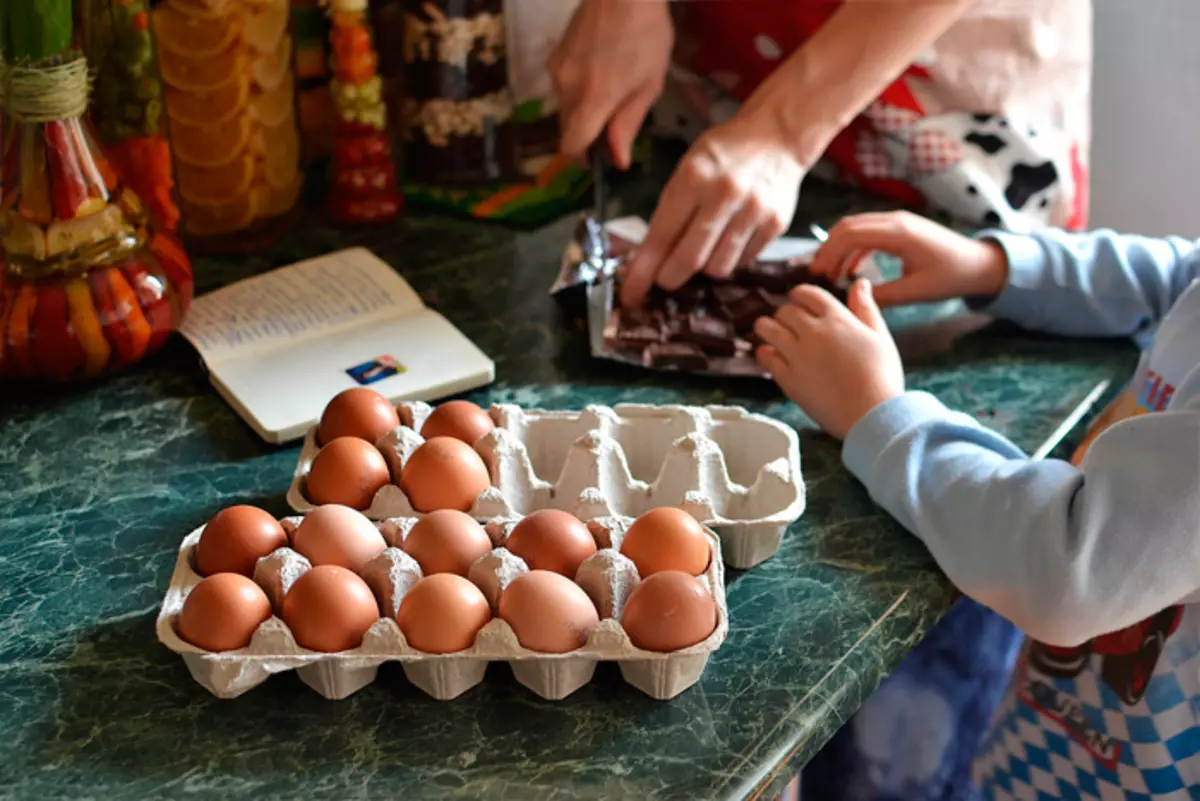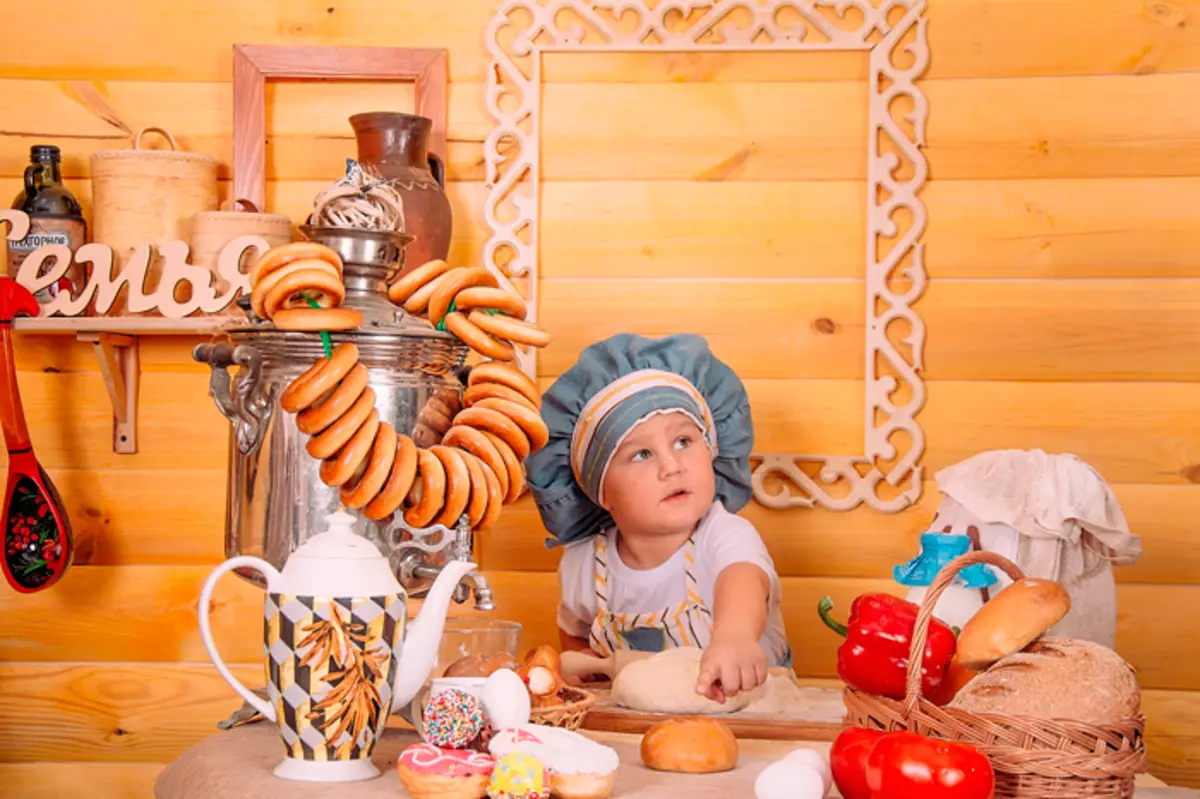Cooking is a congenital gift?
Remember the cartoon "Ratatuus"? One of the heroes there says: "Everyone can cook."
There are people for which food is absolutely a household need. And there are gourmets for which food is art. And in this case, I think we can talk about a certain gift - culinary, gastronomic. To fall in love with food, you need to have, if you can put it, the flair. And unique taste receptors from nature. You can draw an analogy, say, with perfumery industry. Of course, if you go long and purposefully to learn, you will become a strong, popular professional. But to become a genius and create unique flavors, a congenital gift and a unique nose are necessary. The same with the preparation of food. Finding your own handwriting to the cook greatly facilitates congenital talent in cooking.
How important is to teach the child from childhood?
Of course, it is very important to instill the food culture.
I believe that the most important thing is to cultivate food in the sense that food consumption is not to be the process of elementary absorption of dishes, and so that in the family existed the traditions of joint trapes, when the whole family sits at the table, everyone is discussing dishes that eat right now, share Your impressions, learn to listen to ourselves, determine their preferences.
It is also very important to try from an early age to attract children to cooking. It is useful and from the physiological side: when children, for example, smear the dough, work with flour, crosses the cereals and the like, the shallow motorcy develops.
In addition, taking part in cooking, children begin to realize what kind of work it is cooking. Why do you need respect to food. Plus, joint labor unites, and the overall work in the kitchen strengthens the relationship of children and parents.

Prepare along with children
Photo: pixabay.com/ru.
Before you teach, the child must be interested. How to do it?
Of course, if the child has no thrust for cooking, then it will be difficult to teach it. But the food is what we are dealing with every day, at least three times. And some and five times. I, for example, five times a day. Children, naturally, also feel a feeling of hunger. And you can simply feed them, and you can somehow interest. For example, to collect together and make an interesting cookie. No need to say: "Now we will prepare something and that." For a child, cooking food should not be a lesson. Food is not a lesson, food is a pleasure.
What is the meaning of a parent in this matter?
Of course, perfectly, if there are traditions associated with food in the family. For example, Sunday dinners on which several generations are collected. When mom is specifically for such dinners prepares some kind of special dish and prepares it traditionally, habitually for their family.
Of course, not always the mother may be able to prepare such big dinners. Or even just an ordinary daily dinner can not always cook. And you need to buy food for takeaway or go to the restaurant. But even in this case, dining in the restaurant, you can talk with children about food. Discuss the taste of dishes filed, celebrate their features. And during any lunch, home or not, it is extremely important to postpone the phone numbers and devote time to family communication.
How properly parents react to the failures of children?
Very interesting question. How to react to failure? I believe that there is no such thing at all - failure. This we give something assessment. What is the failure of children? There is nothing that could be called failure. Because everything that happens to the child and with us is the exceptionally experience that we get. And sometimes what we call failure is even more motivation in order to behave in some way further, do something interesting.
When the child falls, he just gets up and goes on, he has a natural reflex. If the child is distressed with his failure, you need to speak this moment. Explain that this is not a failure, it is an interesting experience. There is no success without failure, and the question is exclusively in our perception and in the concept, which in our head stuck, which is good, and that it is bad that good luck, and what is not.

Cooking develops small motility in a child
Photo: pixabay.com/ru.
What is strictly forbidden to do if the child suddenly began to show the initiative so as not to discover his interest?
The best thing that the parent can do is love your child. Love certainly. Do not compare it before, under no circumstances with another child. Because every person is unique, every child is born with her potential, with his own destiny, with their karmic some tasks, and, in my opinion, the main thing is to always believe in your child. Even if it seems to you that he is not capable of something, it is not necessary to motivate it on what is good and useful from your point of view. It is your "Wishlist", and they have nothing to do with his personal life. This is your life you live. And the child must live his own. Therefore, it is just important to believe and be there, and that the child is confident in you. He knew that you would always be on his side. Then in the future he will grow with a confident and conscious person.
Is it worth starting to teach a child with complicated dishes or can you do basic knowledge?
I think I do not need. Food is, in fact, that the child simply loves the cooking process. So that he loved the product. So that he understood how the ingredients differ from each other. So that he was not afraid to experiment. To make mom and dad, too, were afraid to experiment in the cooking process. Therefore, parents have a single duty to teach to the food culture and fall in love with the child and the process itself.
What to do if the baby flatly refuses to cook? Maybe just "not it"?
If refuses, let it not prepare. Maybe he will grow by the genius IT, and we will prepare it to force it. Refuses? Let not do. Let just eat high-quality food, and that's it.
